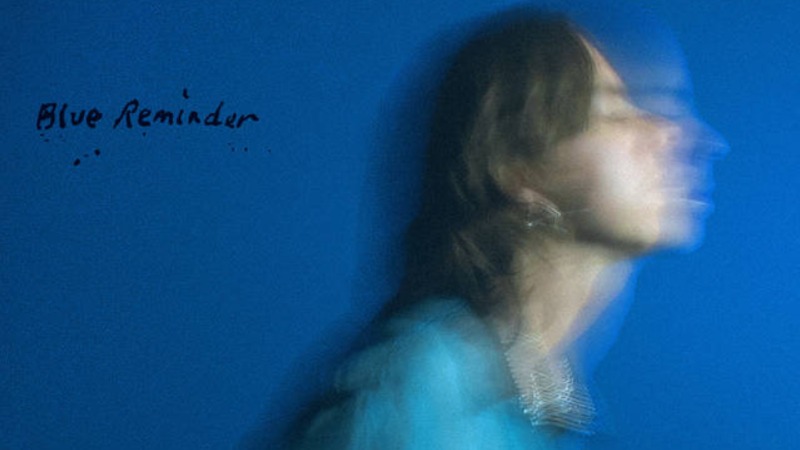Hand Habits Finds a Blue Reminder Where Connection and Uncertainty Collide
Meg Duffy’s fifth solo LP finds clarity in looseness, weaving cinematic arrangements and guitar-driven worlds drawn from duality, refusing to separate pain from love.

Blue Reminder, the fifth Hand Habits album, traffics in co-existing extremes—in compartmentalized disasters and brief, vanishing optimism. Throughout its runtime, Meg Duffy explores how love and fear are always intertwined, and how you can’t fully experience one without the other. Many of the songs were born out of Duffy falling in love and fully stepping into their gender identity at the same time that gay and trans people are living through unprecedented state-backed hostility. Allowing yourself the capacity to feel love while you’re actively being persecuted against is its own paradox; to have love is to simultaneously hold a fear of losing it.
In a Substack post announcing singles “Dead Rat” and “Jasmine Blossoms,” Duffy addressed these contradictions head-on: “It’s been challenging to feel excited about sharing new music in such an ever-evolving hellscape, as human rights are stripped away and we witness literal genocide on the same device I use to tell you about my songs and shows,” they wrote. “It’s not lost on me that many of you, like me, have little capacity for taking in new music or buying records. My only hope is, as always, my art can bring you a short intermission to the unfolding sorrow of the world we live in. Music does help me find a little joy, most of the time, and my wish is it helps you do that too. I think it’s important that we do try.” Blue Reminder finds Duffy looking at the emotional spectrum more realistically and with more grace. The bad will always be there (hence “reminder”), but the goal is to look beyond it. It’s a deliberate choice to insist on joy in a system designed to keep you fearful and threatened.
Aside from their solo endeavors, Duffy is a prolific session musician and touring guitarist, now in year five of their tenure in the Perfume Genius band. They kept collaboration at the core of Blue Reminder, focusing more on the process than the outcome. That meant recording live, chasing improvisational tangents, and letting that person-to-person buzz carry between tracks. Duffy’s guitar remains central, arguably even more so than records like the poppier Fun House and the atmospheric placeholder. Across the 12 songs, they flex their craft in ways that feel sharpened by a collaborative, looser approach to writing and recording (look no further than the winding riffs on “Bluebird of Happiness”) with their fellow Perfume Genius bandmates Greg Uhlmann, Alan Wyffels, and Tim Carr.
-

-

-

-

-

-

-

-

-

-

-

-

-

-

-

-

-

-

-

-

-

-

-

-

-

-

-

-

-

-

-

-

-

-

-

-

-

-

-

-








































